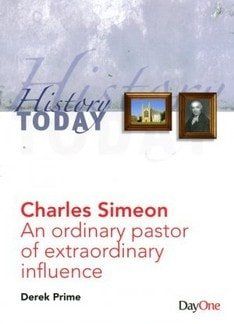Charles Simeon: An Ordinary Pastor of Extraordinary Influence
Derek Prime
Day One
275 pages, £10
ISBN: 978-1-84625-313-3
Stars: 4
For over fifty years until his death in 1836, Charles Simeon was a renowned leader among Anglican evangelicals. This book by Derek Prime is to be welcomed as a means of introducing Simeon to a new generation that could learn much from his winsome godliness and his dedication to the work of the Gospel.
The author chronicles Simeon’s remarkable ministry at Holy Trinity, Cambridge, his encouragement of potential ministers of the Gospel, his promotion of missionary work in India, his concern for the Jews, and many other aspects of his exceptionally busy life. Particular attention is given to his humble and patient attitude towards his many opponents during his early ministry, his views on preaching, and his emphasis on balance and moderation.
Certain aspects of Simeon’s ministry, however, raise questions that remain largely unresolved. Fully committed to the Church of England, he does not appear to have openly addressed the doctrinal, ecclesiological, and political issues bound up with the Established Church. As a corollary – on the evidence presented here, at least – he seems to have had few dealings with his Nonconformist brethren, such as the well-known Baptist Robert Hall Jr, who also exercised an important ministry at Cambridge for most of Simeon’s time there.
One aspect of Simeon’s generally helpful call for balance in theology and conduct was his conviction that Calvinism’s emphasis on grace and Arminianism’s on human responsibility are not incompatible. Strangely, however, he does not appear to have appreciated that Calvinism (as distinct from Hyper-calvinism) in no way denies human responsibility. It might also be argued that his reluctance to commit himself to a more systematic form of theology did little to halt the spread of doctrinal flabbiness in much of Anglican evangelicalism, as evidenced later, for instance, in the enthusiasm of many for Keswick teaching and the defection of others – including some of Wilberforce’s sons – to Roman Catholicism.
The book is especially helpful in drawing out relevant lessons for readers today; an index and suggestions for further reading would have made it even more valuable. Its presentation of Simeon as a godly man and an earnest minister can be warmly recommended. As Sinclair Ferguson says, it ‘cannot fail to instruct, challenge and enthuse.’
Gwyn Davies,
Aberystwyth






